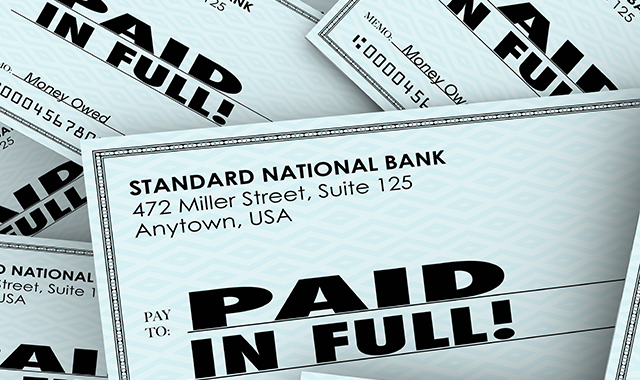How to handle payment collections the right way
While not a pleasant task, establishing processes to ensure consistency in your collection processes and organization in your tracking and communications will ultimately lead to improved financial health for your practice.

One of the biggest hurdles that any dental practice faces is collecting payments from patients. The bottom line-and I’ve heard this reiterated time and time again by leading dental coaches across the country-it is always best to collect payments at the time of service.
Even if you will be filing with insurance, you should collect the patient’s estimated portion while they are right there in front of you. Although this sounds simple, it is surprising how many practices do not follow this simple guideline.
Unfortunately, there are some cases where you have an account that has not been paid even after services were rendered and you’ve been told “the check’s in the mail”. When do you make the first contact for an overdue account?
Most dental consultants will tell you that when a patient account hits the 30-day mark, it is past due, and a gentle reminder should be sent, or a call made to notify the patient of their overdue account status.
This is not a pleasant task, but it is reality that at some point, you or someone else in your office is going to have to pick up the phone and call someone to kindly, but firmly request payment for services rendered.
Here is some guidance on how to make these conversations easier on yourself, your staff and the patients you serve:
1. Make sure that before treatment is rendered, patients have been informed of, and have agreed to your financial policies.
- Highlight when payments are expected, i.e., at the time of temporary crown placement or prior to each perio maintenance session, etc.
- Maintain signed copies of agreed to financial policies.
2. If you must call to collect on an overdue account balance, develop a script (or a series of scripts) and make sure that the person responsible for collections calls is well-trained on the process.
3. Be prepared to handle objections before you dial the phone number. (This should be part of the scripting mentioned above.)
- Play out the possible scenarios in advance and present options to address them if they arise on your call.
- Have an escalation process in place in case someone else higher up in your practice needs to help defuse the situation.
- Remain professional at all times, no matter the response received from the patient.
4. Document every conversation thoroughly and include specific dates/times of follow-up calls and future communication activities or payments scheduled.
5. Make it easy for your patients to pay by offering flexibility in payment options including financing options, payment plans, membership programs, etc.
- Try to not extend “special courtesies” to any one patient. Keep all patients on the same payment trajectory; treating some scenarios as special cases can lead you down a never-ending path of collections and accounts receivables.
- Show patients empathy and compassion. Communicate that you understand the financial burden associated with, for example, the patient’s treatment plan and want to work with them to make sure their issues do not go untreated. This can go a long way towards promoting compliance with their treatment plan and payment.
6. Smile and dial
- If you are not getting a positive response and the debt is still sitting on your books, you may have to turn it over to a collections agency or write it off but be sure that your team has done everything possible to collect what has been earned by your practice. Collections is a last resort.
- Check your state’s collections laws, and if you are unfamiliar with the federal laws related to the Fair Debt Collection Practices Act (FDCPA) and the Truth in Lending Act (TILA), review those as well. If there are any doubts as to what you should or should not do on your own, you may want to consider speaking with a legal representative regarding payment collection options.
Collecting past due payments is something no one really enjoys. While it can feel personal, remember, this is a business where two parties engaged in a business relationship to exchange services for payment. It’s that simple.
The end goal is to collect what you have earned for the care that has been or will be provided. Establishing processes to ensure consistency in your collection processes and organization in your tracking and communications will ultimately lead to improved financial health for your practice.